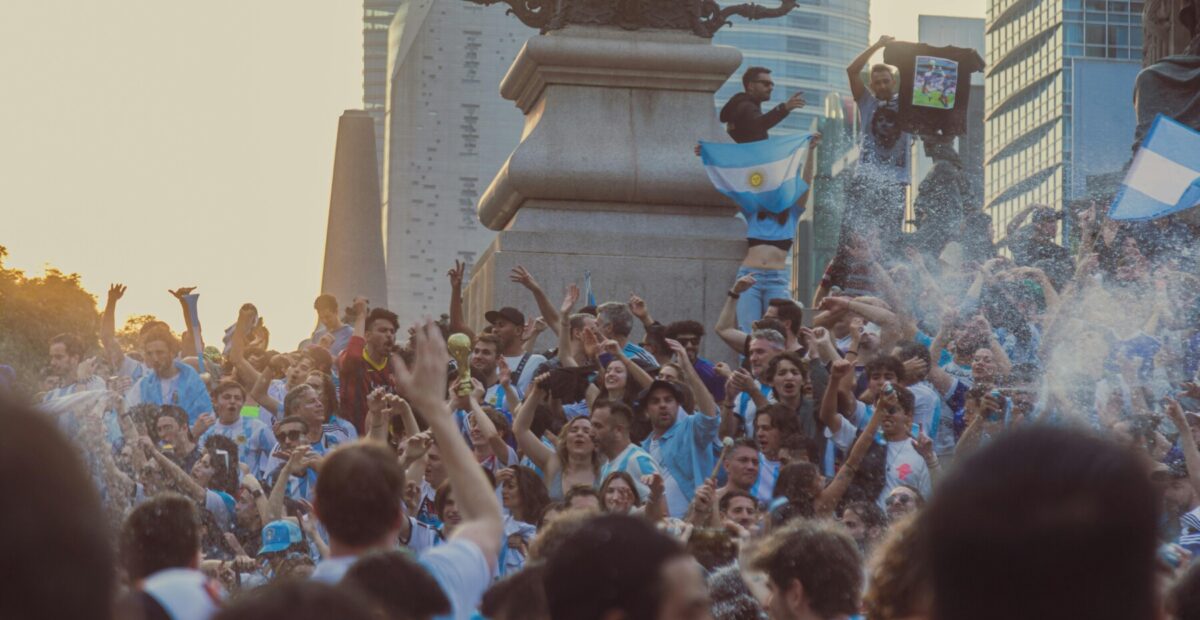
Watch
Lessons from Argentina’s national team

By Santiago Durante (Ciudad Nueva – Argentina)
The Albiceleste national team conquered the world champion title for the third time in history, with a coach at his first experience and with Lionel Messi, who confirmed himself not only as a leader but also as a point of reference for the new generations.
I disagreed with the appointment of Lionel Scaloni as Argentina’s technical commissioner four years ago. I feel it’s important to begin these lines with honesty towards myself and towards the readers. Having followed the national team closely for almost ten years and having witnessed the qualified work of men like Marcelo Bielsa, José Pekerman, Hugo Tocalli, and many of their collaborators, the choice of a young and inexperienced coach seemed more of a gamble than a long-term project.
I apologize for this self-referentiality, but it is right to start with these thoughts, shared at that time by many Argentinians, when we used to still complain about the fact that the best player in the world could not express all his potential in one World Cup. Perhaps these perplexities about the new leadership of the national team were offset by the ever-living hope that football, sooner or later, would be fair to Lionel Messi.
And it was just the serene and faithful aspect of the captain, often criticized, that drew attention during the qualifications, allowing hasty judgments to be set aside.
My point of view kept changing whilst listening to a few young colleagues, who, in the sincerity of their daily lunch break, expressed their “affection” for Scaloneta (the nickname adopted by the team with reference to its coach). The initial doubts on the capacities of the technical commissioner (that I continue to believe are valid because no one knew him) had slowly started leaving space for another question: why not?
The fervor and identification, especially of the new generations, have put into discussion an old conception of this sport that stirs so much passion worldwide. I, who grew up amongst old football dichotomies—the most significant of which was in Argentina, that one between the school of Menotti and that of Bilardo, coaches who led their team to conquer the world title respectively in 1978 and 1986—realized that my young interlocutors went beyond these reasons. Each one of them, naturally, had their own tastes and preferences, but their arguments went beyond the old ways of listening, playing, and enjoying football. Thus, even the classic “it’s always been like this” (with reference to the historical characteristics that the coaches had to have) quickly lost meaning.
Way before winning the ungraspable Copa América in 2021, the atmosphere was already one of conquest. That team, composed of the “rookie” coach, had already created a symbiosis with the public, the likes of which had not been seen since the days of Biesla, before the frustration of the 2002 World Cup. And as Scaloneta made his way into the competition in Qatar, the hashtag #ElijoCreer (“I choose to believe”), then gone viral, had less to do with the old superstitions and became more credible.
A few hours after the third star was added to the shield, people took the streets like never before to celebrate the immense joy of the victory. An event whose importance we will only understand with the passing of time.
However, there are other triumphs that deserve to be underlined. Scaloni ensured that his national team could not be assimilated into the “school” of Menotti, Bilardo, Bielsa, Pekerman, Sabella, or any other former coach. He brought us out of the dated mold, both because of the versatility shown by the team in dealing with matches and because of his “emotional” bond with each of the last names just mentioned. We can say, in fact, that the young technical commissioner has something of each: he was chosen and supported for the post by the champion coach in 1978 and current director of the National Selections of the AFA (the Argentine Football Federation); he owes gratitude to the team in which he made his professional debut, Estudiantes, of which the champion coach in 1986 is a hero; he was born in the “football cradle” of Newell’s Old Boys, inseparable from the Rosario coach whom he has stirred love and hatred for since the days of the elimination in the first round at the 2002 World Cups in Korea and Japan; he is grateful to the late coach who was vice-world champion in Brazil 2014 for the values he transmitted to the national team; and he has come to know (like his colleagues on the coaching staff) the spirit of the national team by becoming an Under-20 World Champion under the guidance of the most successful coach of the youth national teams as well as technical commissioner of the senior national team at the 2006 World Cup in Germany.
And he succeeded in the task that not only the Argentinians but also a great part of the world hoped for: seeing Messi happy on the national team. The star player from Rosario relished the entire World Cup. He said it, he demonstrated it, and he conveyed his enthusiasm to his teammates. A state of mind that became the driving force for the personal and collective performances that contagiously affected an entire country.
We are surely not yet able to measure the impact sparked by the team thanks to Lionel Messi, Scaloni, and teammates. But the perseverance, humility, teamwork, and knowing to start over, to reinvent, and to try again after every fall are certainly permeating the new generations, the youth that understand the value of history and the value of the figures that made Argentinian football great, first amongst all by Diego Armando Maradona. Yet who, at the same time, look forward. Because they have witnessed with their own eyes that there can be another way of doing things. Scaloneta always taught them, and they have adopted Lionel Andrés Messi as their new football polar star for eternity. Many are beginning to follow their example, and I hope that this process could be a lesson for the various areas of our personal, social, and political lives. Why not?
Source:



